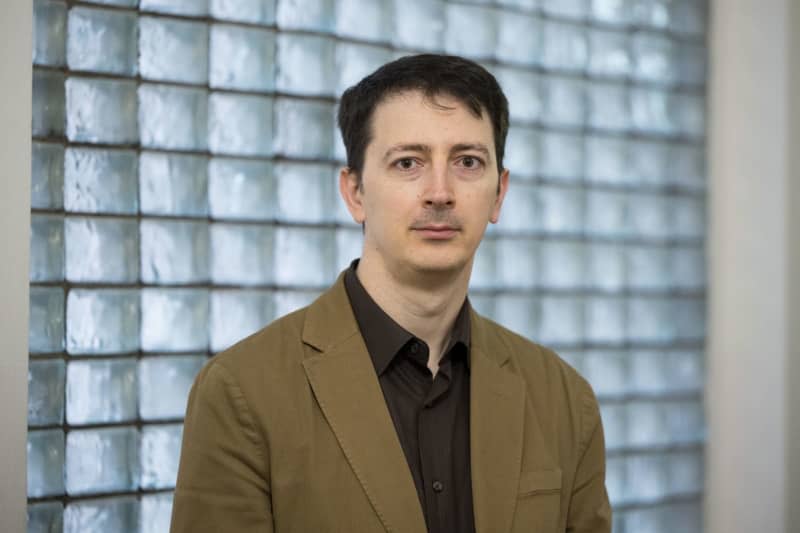Ex-Stasi officer denies murder charge for 1974 Berlin Wall killing

A former officer in communist East Germany's notorious Ministry of State Security, or Stasi, went on trial for murder on Thursday over the 1974 fatal shooting of a Polish man at Berlin's Friedrichstrasse train station.
The man from the eastern city of Leipzig, a former Stasi lieutenant who is now 80 years old, stands accused by prosecutors of having killed 38-year-old Czesław Kukuczka "with a targeted shot to the back from a hiding place" as he crossed the border to West Berlin on March 29, 1974, according to the indictment.
At the time of the crime, the German officer is said to have belonged to a Stasi operative group and to have been tasked with "neutralizing" the Pole.
The slim man, dressed in a burgundy turtleneck under a grey-blue jacket and jeans, looked into the audience with interest. As public prosecutor Henrike Hillmann read out the charges, he made a few notes.
He will not comment on the allegations in court, his defence lawyer Andrea Liebscher explained. "I can tell you that my client denies the allegation," she explained at the start of the trial.
According to a court spokeswoman, the trial relating to the fatal shooting at the busiest border crossing between East and West Berlin will be recorded due to its "outstanding historical significance" for the Federal Republic of Germany. The audio recordings will be made available to the state archives.
Two public prosecutors from Poland and a historian who was involved in investigating the case also attended the start of the trial. "I feel emotionally connected to the case because I have been researching it since 2016," said historian Filip Gańczak, who travelled from Warsaw for the start of the trial.
The investigation into the case made no progress for many years. According to the Berlin public prosecutor's office, however, it was not until 2016 that a decisive clue regarding the identity of the shooter was obtained from the Stasi archives.
According to the co-plaintiffs' lawyers, the decisive factor for this new assessment was a European arrest warrant for the accused following persistent enquiries on the Polish side.
The arrest warrant led to a review of the case, explained lawyer Thomas Walther, who represents one of the victim's sons.
However, according to a spokesman, the authorities initially assumed that the offence was manslaughter. In this case, the offence would have been time-barred. In the meantime, however, the public prosecutor's office believes the criterion of malice aforethought has been fulfilled, hence the charge of murder.
Three children - a daughter and two sons - as well as a sister of the Polish man who was killed are appearing as co-plaintiffs in the trial.
For the daughter's lawyer, Hans-Jürgen Förster, the case shows one thing above all: "It is not abstract that murder is not time-barred."
A Berlin detective inspector, who was given the old files for the new investigations, was the first witness to testify on Thursday. He explained how the case was reclassified as a murder.
Stasi officials had allegedly granted Kukuczka permission to leave the country and even accompanied him to the border crossing at the railway station.
However, as he passed the last checkpoint there in the early afternoon of March 29, he was killed by the fatal shot.
After the fall of the Berlin Wall in 1989, courts in Berlin prosecuted a number of former East German soldiers, police and high-ranking officials for killing people trying to escape the country. A total of 130 people were convicted.
But Thursday's case marks the first prosecution in two decades, and the first time that an East German official has been accused of murder - instead of a lesser charge - for a death at the former border, according to historian Gerhard Sälter.
The investigation into Kukuczka's death picked up in 2016 after files in the Stasi archives revealed the identity of the suspected shooter, according to Sebastian Büchner, a spokesman for the public prosecutor's office in Berlin.
A lawyer for the victim's family, Hans-Jürgen Förster, said he pressed authorities to bring murder charges in the case, citing an order signed by then-Stasi boss Erich Mielke.
The defendant has not commented publicly on the allegations against him.
The district court has initially planned a total of seven trial days. A verdict could be reached on May 23. The trial is due to continue on April 4 with the hearing of an eyewitness.

